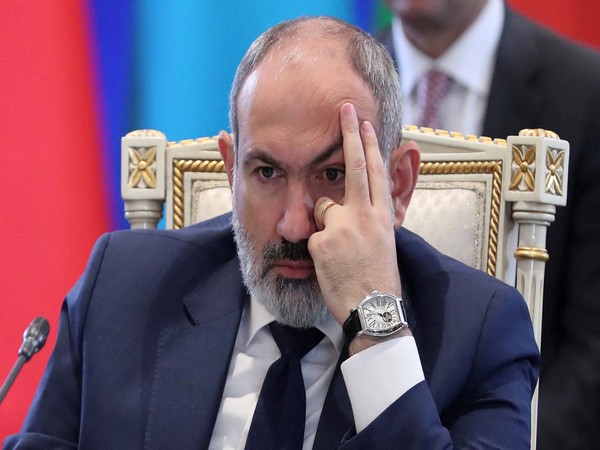Armenia on the Brink: Nearing Peace with Azerbaijan Amidst Protests
Armenian Prime Minister Nikol Pashinyan announced that a peace treaty with Azerbaijan is close, despite rejecting Baku's demand for constitutional changes. Following his comments, protests erupted, leading to clashes with police in Yerevan. The conflicts over Nagorno-Karabakh and domestic disapproval have heightened tensions in Armenia.

Armenian Prime Minister Nikol Pashinyan said on Wednesday that a peace treaty with Azerbaijan was close to completion, but that his country would not accept Baku's demands that it change its constitution. After Pashinyan made the comments, clashes broke out between police and demonstrators, the latest in a series of protests denouncing his policies, including the handing back of ruined villages to Azerbaijan, and demanding his resignation.
Reports and video footage from Yerevan showed police firing stun grenades at protesters massed around parliament. Protesters then moved on to the government building and later dispersed. Police officials, quoted by Russian news agencies, said 17 officers were injured. The Interior Ministry said 79 civilians were hurt and 98 detained.
Azatutyun, the Armenian service of U.S.-funded Radio Liberty, said the protest leader, Archbishop Bagrat Galstanyan, told the gathering he had demanded to see Pashinyan to discuss "the terms of his peaceful departure". Armenian news site CivilNet quoted Pashinyan as saying that the text of the proposed treaty with Azerbaijan was "quite mature" and that it could be signed after "adjustments".
SIGNING A PEACE DEAL Both Armenia and Azerbaijan have repeatedly stated their intention to sign a peace deal to end one of the former Soviet Union's longest-running conflicts, which broke out between the two sides over the region of Nagorno-Karabakh in the late 1980s.
In September 2023, Azerbaijan retook control of Karabakh, ending the region's de facto independence from Baku that it had won in the early 1990s, and prompting virtually its entire ethnic Armenian population to flee to Armenia. The two sides have since been negotiating a peace treaty and demarcating their 1,000 km (625 mile) shared border, which is closed and heavily militarised.
After months of stalled negotiations, Armenia last month returned four Azerbaijani villages it had held since the early 1990s, clearing a major hurdle in the talks. Azerbaijani President Ilham Aliyev has demanded that Armenia change its constitution to remove an indirect reference to Karabakh independence before inking a peace deal.
CivilNet cited Pashinyan as saying on Wednesday that the insistence on constitutional amendments represented an attempt at "torpedoing" the peace process, even as he said that the deal's prospects remained good. Russian peacekeeping troops who were deployed in Karabakh after a 44-day war between Azerbaijan and Armenia in 2020 completed their full withdrawal on Wednesday, Azerbaijan's defence ministry said.
Armenia has criticised the failure of the Russians to intervene and stop Azerbaijan from retaking Karabakh. Pashinyan also told parliamentarians that he felt Russia had failed to live up to its commitments, and Armenia was therefore resolved to quit a Russian-lead security grouping of ex-Soviet states, the Collective Security Treaty Organisation (CSTO).
"We will leave. We will decide when to exit ... Don't worry, we won't return," the Armenpress news agency quoted him as saying.
(This story has not been edited by Devdiscourse staff and is auto-generated from a syndicated feed.)
ALSO READ
Seoul's Snowy Showdown: Impeached President Yoon Sparks Massive Protests
Seoul Snowstorm Standoff: Protests Flaunt Polar Divides over Yoon's Arrest Warrant
Toxic Waste Disposal: Challenges Amid Protests in Pithampur
Patna Erupts: Kishor's Arrest Ignites Widespread Protests
Bhopal Toxic Waste Disposal Sparks Protests and Legal Drama










